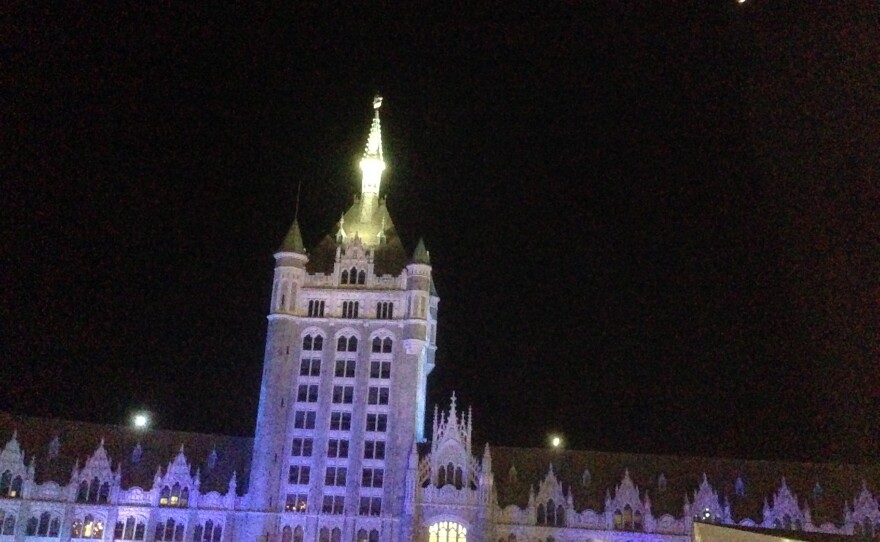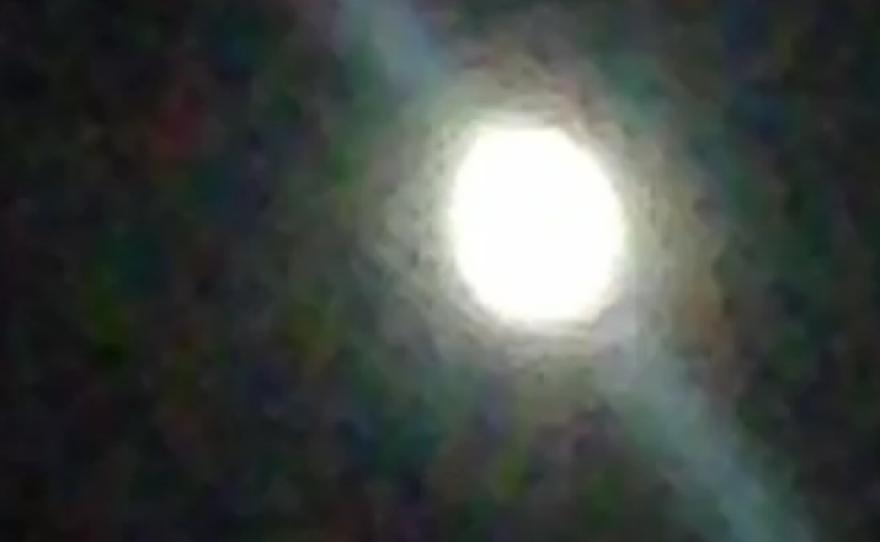On social media and in backyards across the country, Sunday night's lunar eclipse generated a lot of public interest in the stars. But will it last?
If you looked up into the clear skies in the Northeast you saw a rarity: a supermoon that doubled as a "blood moon" — a total lunar eclipse. The earth came between sun and moon just as the moon reached its shortest distance from us, the diffusion of light giving the moon a reddish tint.
Claudio Veliz is a stargazer and instructor at Keene State College in New Hampshire. He says celestial phenomena like the super blood moon eclipse tend to tickle the public's fancy. "And that's as much a function of course of the journalistic uptake in media coverage of an event like this that's so easily visible. Such events require no special instrumentation or special location. You simply need to be outside and you can see it as well from the darkest deserts of the southwest as you can from Times Square, so it’s very accessible."
Astronomer Bob Berman notes the moon has always had a powerful effect on people. "It was a unifying event, the fact that it was visible throughout the mainland United States and Western Europe and Canada, and so many people were watching. I think it was really a come-together thing, even if it did not involve the earth, and it did involve the earth, because that was earth's shadow that the moon went into. What I was doing was, the online observatory SLOOH http://live.slooh.com/ , we were holding a special program, so we had feed partners from around the world, and we had over 3 million people watching us and participating, so I was getting comments from around the world. I was able to really, on top of ducking out whenever we had a recorded piece on last night and seeing it for myself from my own backyard, we had telescopes set up everywhere and people commenting from Brazil and from Europe and so I was really getting a good take on the whole world's perception of this and everyone was pretty wowed by this eclipse, I think more than any other in recent memory."
Astronomy clubs and scientific observatories have been seeing a high number of inquiries surrounding the blood moon.
Dr. Valerie Rapson, outreach astronomer for the Dudley Observatory and miSci in Schenectady, agrees events like the eclipse pique public interest. "Dudley does get a lot more phone calls with just general questions about what's happening, you know 'I saw this on the news; I saw this online, can you explain exactly what's gonna happen or what I should step outside and look for in the nighttime sky?'" About 200 people stopped by the observatory to watch the moon. "We had telescopes set out and a lot of families and children were here, just kind of looking at the moon and watching it turn that awesome orange-red color."
Sunday night's super blood moon eclipse was the first of its kind since 1982, and the last we'll see until 2033.
According to Veliz, the next major event in the heavens is due in about two years. "A total solar eclipse that's going to cross from the northwest to the southeast of the country. And therefore it's going to get a lot of attention, and I would anticipate many astronomy groups are going to enjoy an increase in membership."






